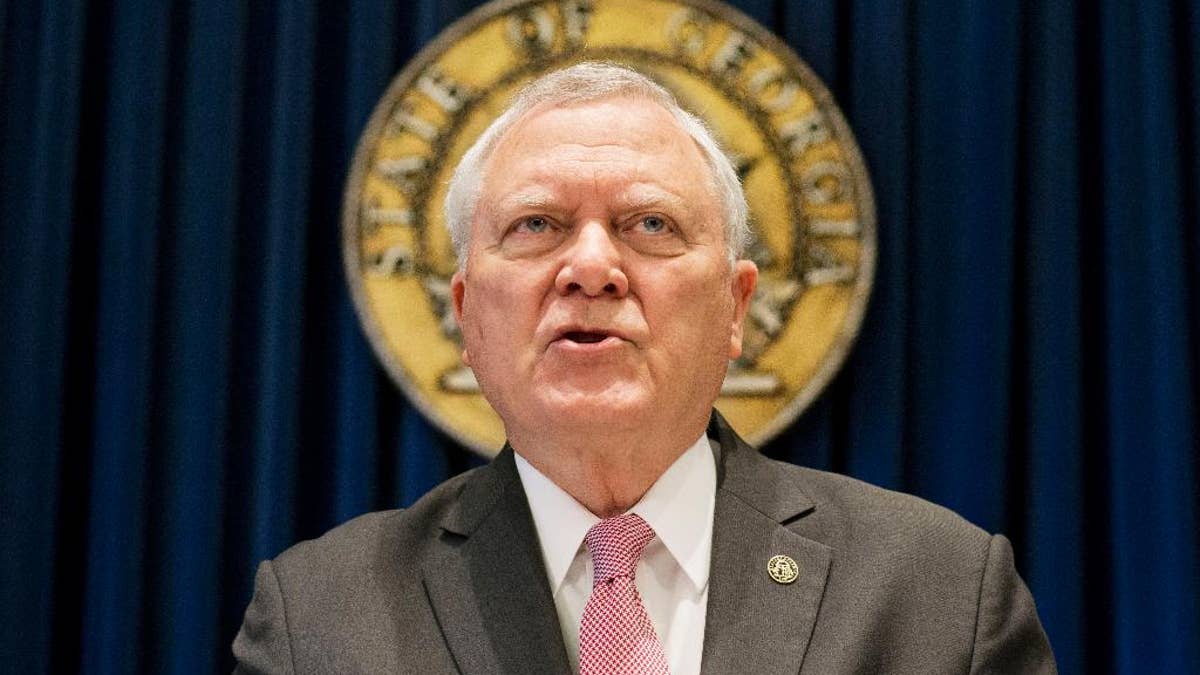
Georgia Gov. Nathan Deal speaks during a press conference to announce he has vetoed legislation allowing clergy to refuse performing gay marriage and protecting people who refuse to attend the ceremonies Monday, March 28, 2016, in Atlanta. The Republican rejected the bill on Monday, saying, "I do not think that we have to discriminate against anyone to protect the faith-based community in Georgia." (AP Photo/David Goldman) (The Associated Press)
Republican Gov. Nathan Deal of Georgia provided a history lesson as he explained his decision to veto a "religious freedom" bill enumerating actions that "people of faith" would not have to perform for others. Here is an excerpt from his remarks:
"My actions today in no way disparage the motivations of those who support this bill. Their efforts to purge this bill of any possibility that it will allow or encourage discrimination illustrates how difficult it is to legislate on something that is best left to the broad protections of the First Amendment of the United State Constitution.
That may be why our Founding Fathers did not attempt to list in detail the circumstances that religious liberty embraced. Instead, they adopted what the late Supreme Court Justice Scalia referred to as 'negative protection.' That is, rather than telling government what it can do regarding religion, they told government what it could not do, namely, 'establish a religion or interfere with the free exercise thereof.'
They had previously proclaimed in the Declaration of Independence that Man's Creator had endowed all men 'with certain unalienable rights,' including 'Liberty,' which embraces religious liberty. They made it clear that those liberties were given by God and not by man's government. Therefore, it was unnecessary to enumerate in statute or constitution what those liberties included.
In light of our history, I find it ironic that today some in the religious community feel it necessary to ask government to confer upon them certain rights and protections. If indeed our religious liberty is conferred by God and not by manmade government, we should heed the 'hands-off' admonition of the First Amendment to our Constitution. When legislative bodies attempt to do otherwise, the inclusions and omissions in their statutes can lead to discrimination, even though it may be unintentional. That is too great a risk to take."









































